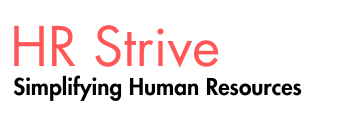In today’s fast-moving world of work, HR is no longer just about hiring, payroll, or compliance. To truly make an impact, HR professionals need something more: business acumen—the ability to see the bigger picture, to understand how the organization operates, and to align HR practices with strategic business goals.
At the heart of this competency are the KSAOs—Knowledge, Skills, Abilities, and Other characteristics—that enable HR professionals to think like business leaders. This means:
-
Understanding how the organization works: from the way different departments function and interact, to how value is delivered to customers or beneficiaries.
-
Recognizing the external environment: being aware of industry trends, economic shifts, technological changes, and competitor movements that influence organizational strategy.
-
Using business tools and analysis: being comfortable with data, metrics, financials, and performance indicators that help shape decision-making and track results.
This shift in mindset might feel unfamiliar at first. Traditionally, many HR roles have focused on transactions and compliance—ensuring people are paid on time, laws are followed, and policies are correctly applied. But to become a true strategic partner, HR needs to step outside of that comfort zone.
Why this matters
Organizations don’t succeed on good intentions alone. They succeed when all parts of the business are rowing in the same direction. HR plays a central role in shaping the workforce, culture, and capabilities needed to achieve business goals—but that can only happen when HR understands what those goals are and what challenges the organization is facing.
This means HR must learn to:
-
Speak the language of business—not just HR jargon, but the terms used by CEOs, CFOs, and board members.
-
Understand what drives value for the organization—whether it’s innovation, cost-efficiency, customer experience, or social impact.
-
Make decisions with impact—from structuring teams to allocating budgets, every HR initiative should help move the organization forward.
For example, managing the HR budget isn’t just about tracking expenses. It's about investing in the right people initiatives—training, recruitment, benefits, technology—that will yield measurable returns. It's about asking: How does this program support our strategy? What results are we trying to achieve?
Becoming more than a support function
When HR professionals embrace business acumen, they evolve from being administrative support to strategic advisors. They are better able to:
-
Collaborate with leaders across departments
-
Anticipate workforce needs
-
Identify opportunities for organizational growth
-
Influence decisions that shape the company’s future
They no longer just respond to business strategy—they help create it.
Final Thought
Business acumen isn’t about becoming a finance expert or a marketing guru—it’s about understanding how your organization runs and how HR can contribute to its success. It’s about asking the right questions, using data wisely, and being proactive. It’s about thinking like an owner—because when HR leads with business insight, it becomes a key driver of transformation, resilience, and growth.

No comments:
Post a Comment